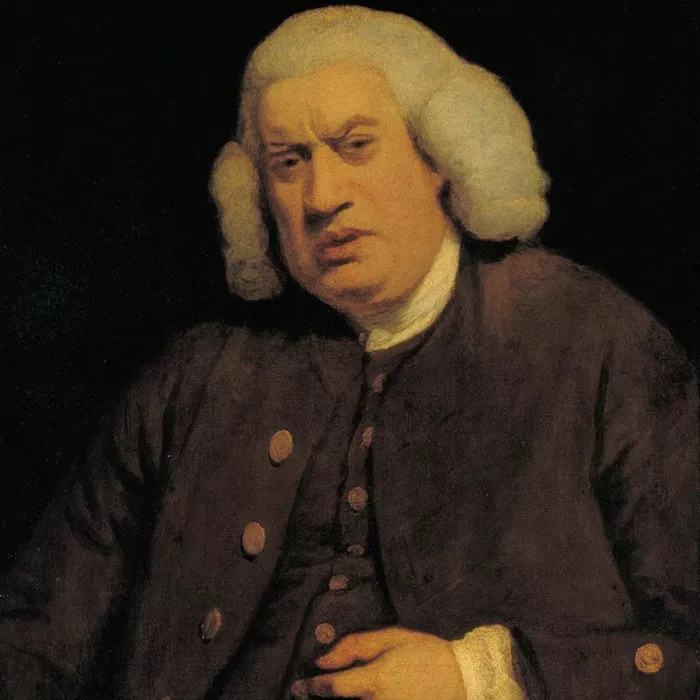
Samuel Johnson (1709–1784), often referred to as Dr. Johnson, was an English poet, essayist, lexicographer, and critic. Known for his sharp wit, literary insight, and monumental work A Dictionary of the English Language (1755), Johnson’s poetry, though less voluminous than his prose, captures his profound intellect, moral philosophy, and reflections on human experience.
Samuel Johnson Tennyson Biography
Samuel Johnson was born on September 18, 1709, in Lichfield, Staffordshire, England. His father, Michael Johnson, was a bookseller, exposing young Samuel to literature from an early age. Johnson displayed remarkable intelligence but faced challenges, including financial hardships and scrofula, which left him with physical impairments.
Educated at Pembroke College, Oxford, Johnson’s studies were cut short due to a lack of funds. Despite this setback, he pursued a career as a writer, eventually moving to London in 1737 to establish himself in the literary world. His early works included translations, essays, and his first major poem, London (1738), a satire on the moral decay of society, inspired by Juvenal. The poem’s success brought Johnson initial recognition.
In 1749, he published The Vanity of Human Wishes, another Juvenalian satire exploring the futility of ambition and the transience of human endeavors. This work solidified his reputation as one of England’s foremost moralists.
Johnson’s most enduring contribution to literature came with his Dictionary of the English Language (1755), a monumental achievement that set the standard for English lexicography for over a century. While working on the dictionary, he also wrote essays, including those for The Rambler and The Idler, which showcased his keen intellect and moral insight.
In his later years, Johnson enjoyed fame and financial stability. His friendship with biographer James Boswell, who documented Johnson’s life in The Life of Samuel Johnson, preserved his legacy for future generations. Johnson was a devout Anglican, and his deep faith influenced much of his writing.
Samuel Johnson died on December 13, 1784, in London and was buried in Westminster Abbey. His works remain celebrated for their moral clarity, intellectual depth, and mastery of language.
Samuel Johnson Poems
Samuel Johnson’s poetic works are notable for their moralistic themes, neoclassical style, and satirical tone. Here is an introduction to some of his most significant poems:
1.“London” (1738)
A Juvenalian satire based on Juvenal’s Third Satire, this poem critiques the corruption and moral decay of 18th-century London, reflecting Johnson’s disdain for social and political inequality.
2.“The Vanity of Human Wishes” (1749)
Johnson’s masterpiece, this poem is a meditation on human ambition and the inevitable disappointments of worldly pursuits. Its philosophical depth and eloquence have made it a hallmark of 18th-century poetry.
3.“On the Death of Dr. Robert Levet” (1782)
A touching elegy to Johnson’s friend and housemate, Dr. Levet, this poem highlights themes of friendship, gratitude, and the value of a humble, virtuous life.
4.“A Short Song of Congratulation” (1750)
This satirical piece humorously critiques superficial celebrations of material success.
5.“Prologue at the Opening of the Theatre in Drury Lane” (1747)
Written for David Garrick’s theatre, this poem reflects on the purpose and challenges of the theatrical arts.
6.“Irene” (1749)
A tragedy written in verse, Irene was adapted into a play performed at Drury Lane Theatre. Though its reception was mixed, it showcased Johnson’s dramatic ambitions.
7.“Paraphrase of Proverbs VI.6–11” (1729)
This early work demonstrates Johnson’s interest in biblical themes and moral instruction.
8.“The Young Author” (1738)
A reflection on the struggles and aspirations of young writers, this poem resonates with Johnson’s own experiences.
9.“To Miss Hickman, Playing on the Spinet” (1755)
A lyrical and affectionate piece celebrating music and creativity.
10.“Spring” (1748)
A philosophical poem meditating on the cycles of nature and human life, written in Johnson’s characteristically reflective style.
Though Johnson’s poetic output is limited compared to his prose, his works demonstrate a mastery of language and an enduring concern for moral and philosophical questions.
Samuel Johnson Quotes
1.“The vanity of human life is like a river, constantly passing away, and yet constantly coming on.”
2.“Hope is itself a species of happiness, and perhaps the chief happiness which this world affords.”
3.“Great works are performed not by strength but by perseverance.”
4.“Integrity without knowledge is weak and useless, and knowledge without integrity is dangerous and dreadful.”
5.“He who makes a beast of himself gets rid of the pain of being a man.”
6.“The chains of habit are too weak to be felt until they are too strong to be broken.”
7.“Curiosity is one of the most permanent and certain characteristics of a vigorous intellect.”
8.“To love and to be loved is the greatest happiness of existence.”
9.“Language is the dress of thought.”
10.“A man may write at any time if he will set himself doggedly to it.”
Samuel Johnson Facts
1.Samuel Johnson was nicknamed “Dictionary Johnson” for his monumental Dictionary of the English Language.
2.Despite his brilliance, Johnson often struggled with depression and described it as his “black dog.”
3.Johnson suffered from Tourette’s syndrome, though it was not understood during his time.
4.He married Elizabeth “Tetty” Porter, a widow 20 years his senior, in 1735.
5.Johnson was a central figure in the “Literary Club,” which included figures like James Boswell and Edmund Burke.
6.His biography, The Life of Samuel Johnson by James Boswell, is considered one of the greatest biographies ever written.
7.Johnson was highly religious and wrote extensively on theology and morality.
8.He lived modestly for much of his life, relying on the patronage of friends and benefactors like Lord Chesterfield.
9.Johnson’s wit and conversational skills made him a celebrated figure in London’s literary circles.
10.He was buried in Westminster Abbey, a testament to his importance in English literary history.
